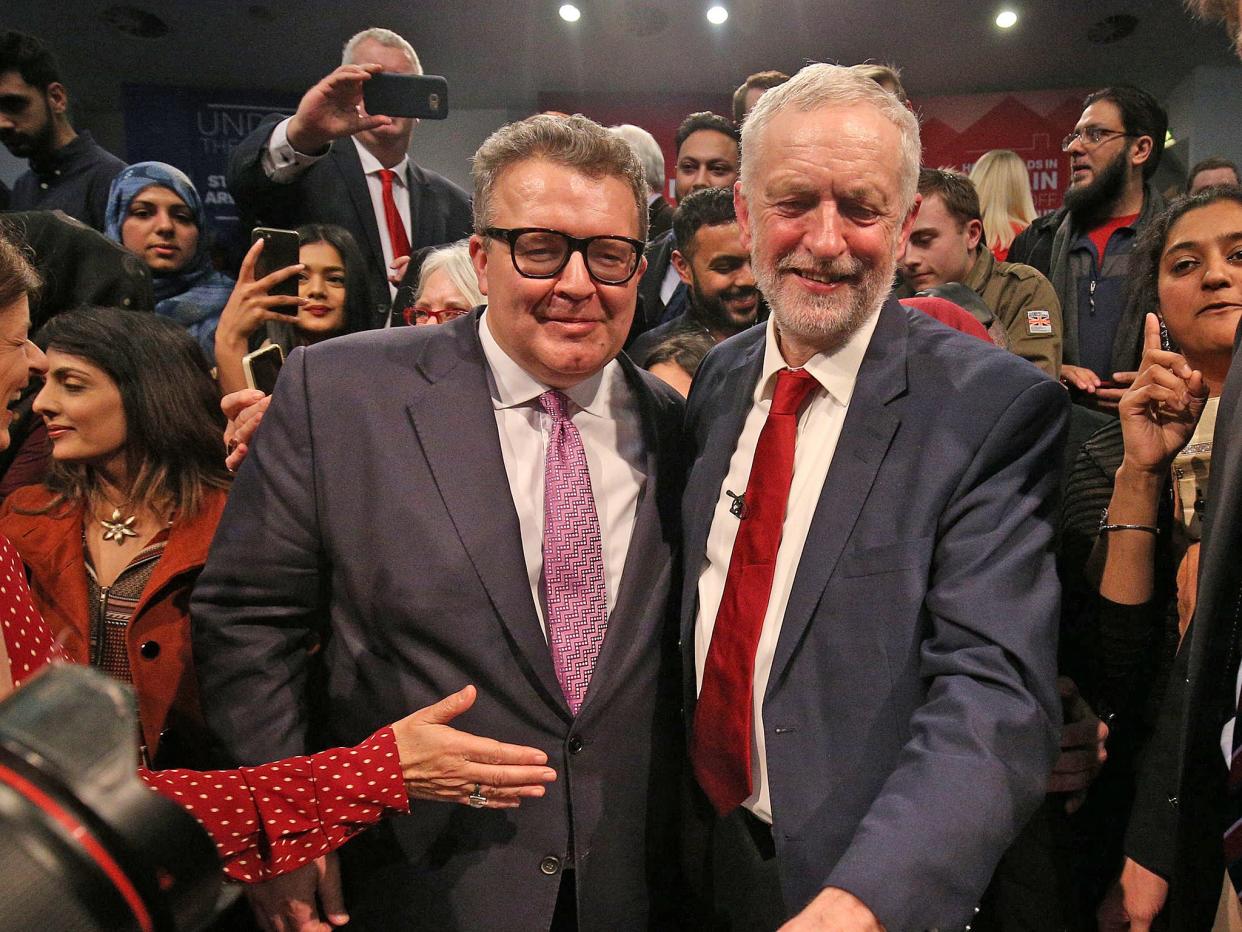Tom Watson says Labour’s ‘brutality and hostility’ behind decision to quit party

Tom Watson has revealed part of the reason he stood down as Labour’s deputy leader ahead of the general election was due to the “brutality and hostility” he experienced within the party.
Mr Watson, who is no longer an MP, also claimed Jeremy Corbyn “nearly” resigned as party leader after losing the confidence of his parliamentary colleagues in 2016 and facing a second divisive leadership challenge.
In his first interview since vacating the deputy leadership role, Mr Watson delivered a scathing assessment of Labour’s general election campaign – following the party’s worst electoral defeat of the post-war era.
“I don’t know what the message of our campaign was,” he told The Guardian. “There were announcements everywhere, but none of them got through because there were so many.
“You knew what Boris Johnson was: get Brexit done. What was the Labour strapline?”
Mr Watson announced ahead of the election he would not seek re-election for the West Bromwich East constituency – eventually won by the Conservatives on 12 December – saying the decision was personal rather than political.
But he told the newspaper that conditions within Labour were partly responsible for making his political career unsustainable.
Mr Watson added that a Labour supporter had been arrested for making a death threat, but party officials had not informed him about it. “The point is that the brutality and hostility is real and it’s day to day,” he said.
“So I just thought, now’s the time to take a leap, do something different. You’ve had a good innings. You’ve done good stuff. Go now.”
He continued: “The return of political factionalism. The idea that you could be portrayed as the enemy within. People questioning your motives. Social media pile-ons. Condemnation from powerful trade union general secretaries on broadcast media. Internal bickering. On their own, you deal with them and they’re a part of life.
“Combine them, and you’re carrying a very heavy load. And sometimes you’ve got to realise when the balance of life shifts and there are other things that are more rewarding.”
Mr Watson also disclosed in the interview that he had voted for Owen Smith in the 2016 leadership contest against Mr Corbyn – something he had “never said publicly before”.
“I thought, as soon as the leader loses the confidence of the parliamentary party it’s almost impossible to see how they can form a government,” he said. “I thought Jeremy should have resigned, and he nearly did. But actually I was wrong on that. He went over the heads of the PLP [Parliamentary Labour Party] and won a resounding mandate from the membership.”
Read more
Dan Jarvis hints he could join Labour leadership race
Labour staff who mishandled antisemitism should be sacked – Thornberry
Ed Miliband spearheads review of Labour’s general election failure
Former Labour MP and Corbyn ally blames Tony Blair for election defeat
Momentum founder ‘advising Long Bailey on Labour leadership bid’

 Yahoo News
Yahoo News 
